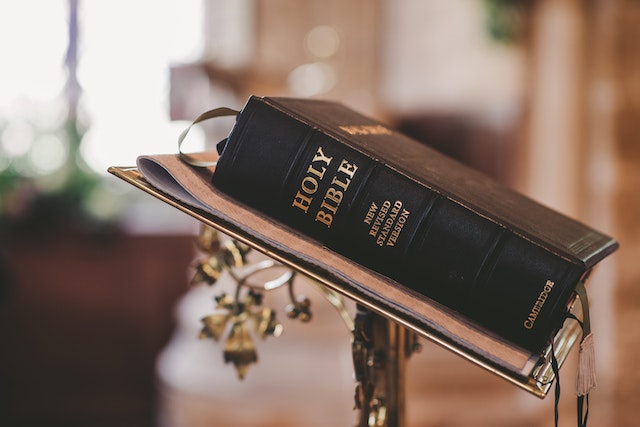
How did the neck verse save people from being hanged in England? The benefit of clergy was known as the neck verse and it was an English law that allowed people to escape hanging if they could memorize Psalm 51:3.
Latin: “Miserere mei, Deus, secundum misericordiam tuam; et secundum multitudinem miserationum tuarum dele iniquitatem meam.”
English: “Have mercy on me, O God, according to your mercy; and according to the greatness of your tender mercies blot out my iniquity.”
The neck verse didn’t start as a get-out-of-hanging” card. Up until 1166, English law courts were presided over by a bishop and a magistrate, who would both have equal say over sentencing. This had begun back in Roman times. When Rome converted to Christianity, the emperors gave protections to bishops and clergy. They were generally exempted from prosecution. Having both a bishop and a judge in the court gave the idea that the state and the church were on equal footing. A person was being tried by both his king and his god. King Henry II didn’t like the idea that the church had equal power. In 1166, he passed a law that removed the bishop from the courtroom. The church wasn’t very happy with this because it removed a large part of their power. The Archbishop of Canterbury at that time, Thomas Becket, couldn’t stop the law, so he requested that these royal courts wouldn’t have authority over clergymen. Henry initially refused, but Thomas Becket was murdered by knights acting for the king, and Henry II had to agree to the request in order to be absolved of guilt by the church.
When the law was passed, a clergyman being tried in a court could claim that they were outside the jurisdiction of the court. They used the benefit of clergy to be transferred to an ecclesiastical court, which very rarely handed down the death penalty. More likely the punishment would be penance. Clergymen had to be dressed in the appropriate ecclesiastical attire and have their hair tonsured (shaved around the middle) to be able to use the benefit of clergy defense. It was too easy for someone to shave their head and get access to the dress of the clergy. The rules had to be changed to make it more difficult for non-clergy to use the defense.
By 1351, the law was changed so that a defendant had to read Psalm 51:3 from the Bible, to prove that they were in the clergy. The thinking was that only the clergy were educated enough to be able to read a Latin text. The benefit of clergy was also allowed for other educated people. Ben Jonson, the playwright, was able to use the defense to avoid being hanged for manslaughter. Of course, it doesn’t take much to memorize the passage in order to pretend that you can read. This Psalm became known as the “neck verse” because if someone could memorize and recite it in court, they would save their neck.
The courts were not ignorant to this. The “neck verse” was allowed as a way of being lenient without appearing to be lenient. In Elizabethan England, 90% of offenders were allowed to use the benefit of clergy. It was a way for first-time offenders to have a second chance. However, the defense was only allowed once. After someone had used it, their thumb would be branded to show they had already used it. Also, if someone was being tried for a particularly heinous crime, they would be asked to read a different psalm.
Some crimes were exempted from the benefit of clergy. These were murder, rape, poisoning, petty treason, sacrilege, witchcraft, burglary, theft from churches and pick pocketing.
In the early 18th century, the benefit of clergy was still allowed as a way to give first time offenders a second chance. The need to recite the psalm was also removed. However, when the Industrial Revolution started, as more people were moving into the cities, crime increased. The British Government excluded many crimes from the benefit of clergy, bringing in death or transportation for many minor crimes. And those people that did receive the benefit of clergy would get two years of hard labor, which was quite often a death penalty in itself.
The law was finally abolished in 1823. It actually survived for longer in America and the benefit of clergy defense was used in South Carolina as late as 1855.
So, from 1166 until at least the mid 1700s, you could avoid being hanged if you could memorize the neck verse. And that is what I learned today.
https://en.wikipedia.org/wiki/Benefit_of_clergy
https://www.bl.uk/magna-carta/articles/magna-carta-and-jury-trial
https://en.wiktionary.org/wiki/neck_verse
